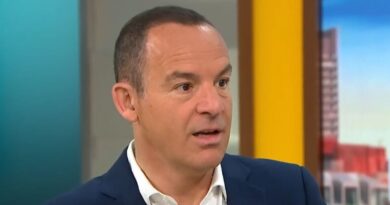Two-tier TV Licence as BBC boss wants higher rate for certain households | Personal Finance | Finance
It’s the household bill payable by pretty much everyone who watches TV and in April the TV licence is increasing by another £5 to £174.50 per year. But with discussion swirling around the future of the TV licence, the BBC’s chairman has proposed a controversial ‘two tier’ solution which would see wealthier people made to pay more to watch TV.
Right now, a TV license is a legal requirement for anyone who watches live TV (TV shows as they are broadcast, whether through an aerial, satellite or streaming), or anyone who watches BBC iPlayer whether live or catch-up. But the £174.50 fee is payable by all households, whether they have a high income or a low income – the one exception being a free TV Licence for those aged over 75 and on Pension Credit.
Speaking to The Sunday Times, BBC chairman Dr Samir Shah proposed a new TV licence fee system based on a property’s value, a bit like council tax, which is charged based on the house’s estimated value when the bands were assessed.
He said: “Why should people who are poor pay the same as people in wealthy households?”
He suggested that a ‘household levy’ could be collected within council tax, which would also get rid of the ‘enforcement issue’, which saw TV Licensing send a reported 41 million letters to British households between 2023 and 2024 warning them to pay their TV licence.
If such a system were put in place, it could see council tax bands F, G and H being hit with higher TV licence bills.
Council tax bands split between A to H based on property value. Band A properties are the lowest value homes, while Band D is average and Band H is the most expensive bracket.




